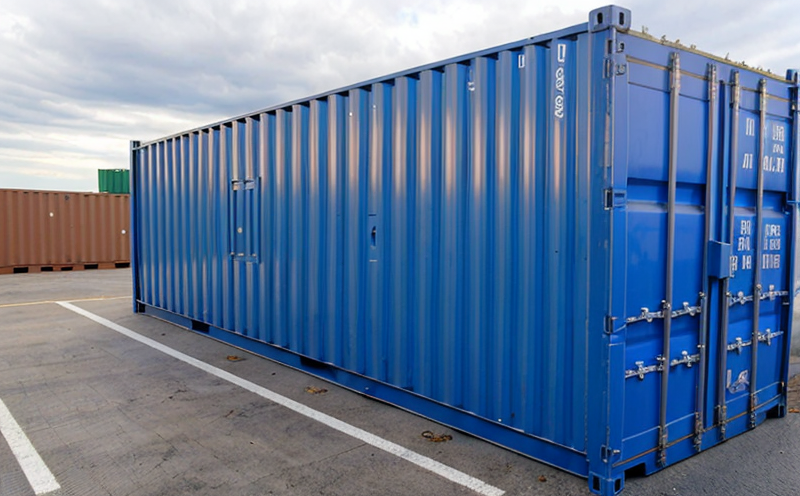EN ISO 6603 Impact Resistance Testing of Plastic Storage Containers
The EN ISO 6603 standard is designed to evaluate the impact resistance properties of plastic storage containers. This test is essential for ensuring that containers can withstand the rigors of real-world applications without compromising their structural integrity or safety.
This service assesses a container's ability to resist impacts from a specified weight and velocity, typically using a hammer drop apparatus or similar impact testing machine. The primary objective is to identify potential weaknesses in the design that could lead to failure during storage, transport, or handling.
The test setup involves placing a specimen of the plastic storage container on a rigid surface with specific geometric dimensions as per the standard. An impactor (hammer) of predefined mass and shape is then dropped from a specified height onto the center of the specimen. The impact force is measured to assess the container's resistance.
The testing process is repeated multiple times, often under different conditions such as varying ambient temperatures or humidity levels, to ensure that the results are consistent across various environmental factors.
Impact resistance testing is critical in sectors like packaging and logistics where containers must endure rough handling during distribution. It helps manufacturers identify materials and designs that can better withstand impacts, thereby enhancing product safety and reliability.
The standard also includes acceptance criteria to determine whether the container meets the required specifications for impact resistance. These criteria ensure that only containers with adequate structural integrity pass the test, providing assurance of quality and compliance.
Scope and Methodology
| Parameter | Description |
|---|---|
| Test Specimen | The plastic storage container to be tested. It should be free from defects and representative of the intended product. |
| Impactor | A standardized hammer with a specified mass and shape used for delivering impact energy to the specimen. |
| Test Setup | The test setup includes a rigid surface, alignment guides, and a method of measuring the height from which the impactor is dropped. |
| Data Collection | Measurement of the force exerted during impact, along with any observed deformation or failure points on the container. |
The testing process follows a structured protocol to ensure consistency and reproducibility. Specimens are prepared according to the standard's specifications, and the test setup is calibrated before each run.
Data collection involves recording both quantitative measurements of impact force and qualitative observations of container behavior under stress. These data points are crucial for evaluating the container's performance and identifying potential areas for improvement.
International Acceptance and Recognition
The EN ISO 6603 standard is widely recognized in Europe and many other regions around the world. Its acceptance ensures that testing results are credible and universally applicable, facilitating easier market access and compliance across international borders.
Many industries rely on this standard to ensure the safety and quality of plastic storage containers used in packaging, logistics, and various manufacturing processes. Compliance with EN ISO 6603 can be a key factor for manufacturers seeking to enter new markets or meet regulatory requirements.
The standard is continuously updated to reflect advancements in materials science and testing methodologies. This ensures that the test remains relevant and effective in assessing modern plastic storage containers.
Use Cases and Application Examples
Testing containers used for food packaging to ensure they can withstand rough handling without compromising safety.
Evaluating storage bins used in warehouses to determine their durability under various environmental conditions.
Assessing the impact resistance of fuel tanks in vehicles, ensuring they meet stringent safety standards.
Testing containers for hazardous materials transport, where structural integrity is critical for preventing leaks and spills.
Evaluating recycling bins to ensure they can withstand regular use without degrading.
These examples illustrate the diverse applications of EN ISO 6603 in ensuring product safety and compliance across various industries. The standard's broad applicability makes it a cornerstone for quality assurance in plastic storage container manufacturing.





